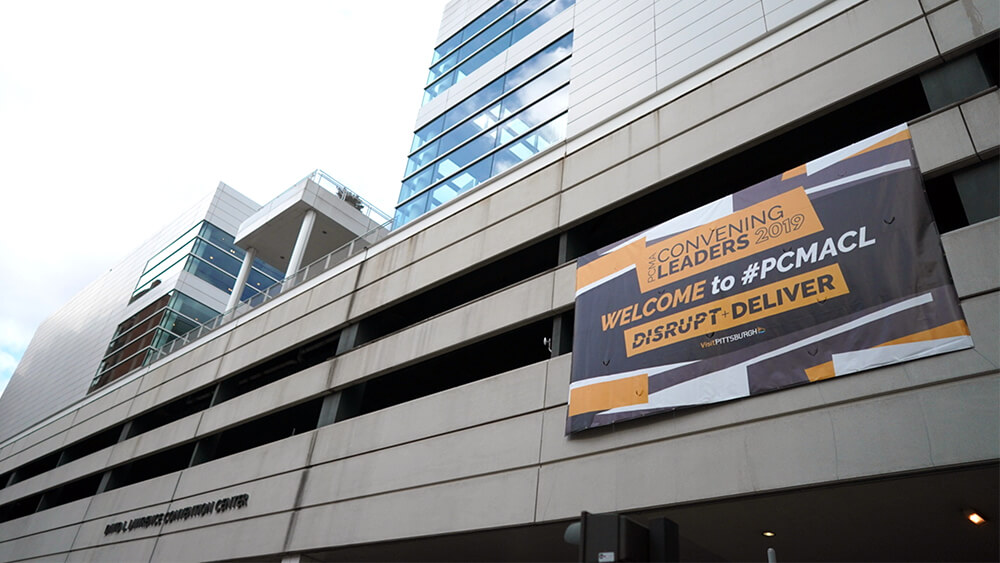Expedia, Priceline, hotel websites, Airbnb, and more — the number of ways to book a hotel room for a meeting continues to expand. Despite the growing portfolio of places to make a reservation, the business events industry has continued using the traditional room block model. “There is an awareness that room blocks are imperfect,” Frank Passanante, senior vice president Hilton Worldwide Sales–Americas, said in “Hard Data on What’s Happening With Bookings” at PCMA Convening Leaders on Jan. 9. “But we all have been largely doing the same thing and using the traditional model for decades.”

Frank Passanante
To devise a new strategy, Hilton Worldwide, NYC & Company, and the PCMA Foundation are working together to support research to better understand what shapes attendee booking behaviors. “There is continued enthusiasm among all event stakeholders to innovate the room booking process,” Meredith Rollins, executive director of the PCMA Foundation, said. “The intent of this research project is to put the attendee at the center of the conversation by understanding their booking behaviors and what influences their decisions.”
In the Convening Leaders session in Pittsburgh, Mark Lomanno, a partner and senior adviser with Kalibri Labs, offered a preview of the initial findings from the research. Kalibri Labs analyzed a mix of citywide conventions in Houston, New York City, and San Diego, combing through more than two million anonymous hotel and Airbnb guest records from 2015 to 2018. “Looking at annual conventions was very important because we wanted to establish consistency,” Lomanno said. “We wanted to understand what people do year after year.”
In addition to that existing data, Kalibri surveyed 750 convention attendees to better understand what motivates registrants to book inside or outside the block and frustrations with the booking process. He acknowledged that the study is in a “wet cement” phase; the Convening Leaders session was designed to collect feedback to enhance the research. But one piece of information seems fairly concrete, Lomanno said: Nearly half of citywide convention attendees book outside the room block.
“The primary reasons for not booking in the block revolve around price, loyalty points, and room preferences,” Lomanno said. The pricing aspect relates to the fact that many attendees believe they can find cheaper accommodations if they book on their own. However, the research reveals that many of those attendees are locking themselves into bad deals. More than 60 percent of attendees who book outside the block wind up paying higher rates than those booking inside the block, according to Kalibri’s cost comparisons.
Age Differences

Mark Lomanno
Just as the events industry grapples with questions of how to meet the expectations of younger attendees in education sessions and networking environments, the initial findings show that younger attendees have a different approach to booking hotels. Fifty-nine percent made their reservations outside of the traditional conference hotel room-block channel. “Someone over 40 is much more likely to go through the traditional booking process,” Lomanno said. “What we don’t know is whether the under-40 group will become more traditional as they get older, or if it’s a behavior that they will stick with moving forward. When thinking about the room block of the future and how to make the guest experience better, this is something to consider and something to further study.”
Lomanno and Kalibri are continuing to crunch the numbers to uncover insights that can help event organizers, hoteliers, and CVBs plan for building a better room-block model. “One size doesn’t fit all here,” Lomanno said. “What happens at a big or small convention, an annual convention in the same city, or a rotational convention [with new host destinations each year] can be very different.”
Using More Feedback to Fuel the Study
When the first phase of the research is officially complete, Lomanno said that the PCMA community can expect to gain an understanding of current behavior trends as they relate to citywide conventions. “This research will identify these trends from both a consumer perspective and a booking behavior perspective,” Lomanno said. “The reader will get to know consumer ‘likes and dislikes’ as they relate to the booking experience and answer the question of why they do what they do.”
As the research moves past the initial findings stage, Lomanno is looking for more participants to provide input. “We absolutely want to collect more feedback in the next phase of the research,” Lomanno told Convene after the session. “There are a lot of constituents involved in the convention business and the research only gets richer when all perspectives are examined and made part of the analysis.”
To share your perspective and volunteer to participate in the discussion, go to the PCMA volunteer page and select the Business of Events category.

